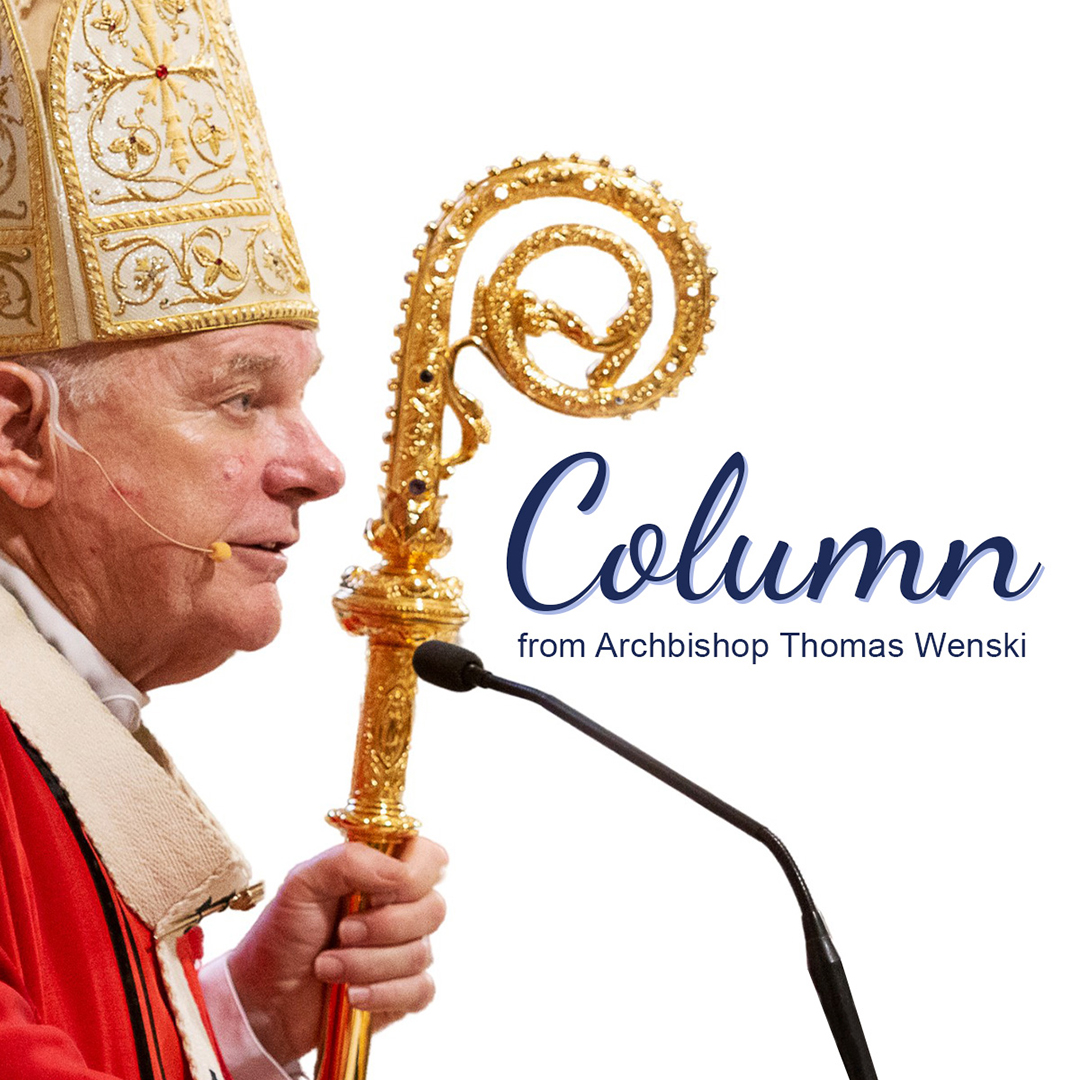By Archbishop Thomas Wenski - The Archdiocese of Miami
The mass deportation of irregular migrants continues to grow in momentum. Richly funded by the recently passed “Big, Beautiful Bill,” it is increasingly apparent that the targets for these enforcement actions are not only “bad actors”, criminals no one wants loose on our streets, but also hard-working, honest people, many of whom have been in this country for decades, paying taxes, raising families and contributing to the common good of our nation.
In Victor Hugo’s famous 19th-century novel Les Miserables. (Perhaps, more familiar to many in a modern musical version, Les Miz.) Motivated by bitterly zealous legalism, Inspector Javert relentlessly pursues Jean Valjean, who spent years in prison for stealing a loaf of bread.
Today, modern-day Javerts bent on enforcing a broken, and thus unjust, immigration regime are deporting agricultural, construction, service and hospitality workers who are in an irregular immigration status. And various personalities in the government and in the news media fan flames of resentment against these supposed lawbreakers, equating them with terrorists intent on hurting us.
I deliberately describe these migrants as “irregular” migrants, not as undocumented or illegal, for the majority of them have some type of documentation or even legal status, albeit a temporary legal status and most are not guilty of any serious crime.
Justice must be more than a cold and impersonal calculation of the narrow legalism of an Inspector Javert. Justice is first and foremost a virtue. The Catechism describes the virtue of justice as “the constant and firm will to give their due to God and neighbor (CCC 1807). In other words, justice is the virtue by which we turn outward toward God and to other people, to affirm their fundamental dignity and we strive to act in accord with their true good. To be a just man – or woman – is to be a person who turns outward to other people, seeing them as God sees them which is, of course, with perfect and unwavering charity.
Today, many take umbrage at the Catholic bishops’ advocacy on behalf of the irregular migrants. But, in doing so, we stand in a proud moral tradition that holds positive laws should promote both the common good and the good of the individual in society. This is what Jesus meant when he said the Sabbath was made for man and not man for the Sabbath. And, as St. Augustine, is attributed to have said, “An unjust law is no law at all,” which is why we, a nation of laws, can honor lawbreakers like the patriots of the “Boston Tea Party” and allow the dignified defiance of Rosa Parks in her act of lawbreaking to touch its conscience. We can be a nation of laws without becoming a nation of Javerts. As Jesus reminded the embittered zealots of his day, positive laws, even divine positive law like the Sabbath observance, are designed for the benefit, not the harm, of humankind.
The present “enforcement-only” approach aggravates the polarization of our body politic, and it causes irreparable harm to many families whose loved ones are rounded up, detained and ultimately deported to countries that they have not known in many cases for decades. And ultimately, it will not work for the benefit of America. Rather than just busying itself with enforcing flawed immigration laws, the administration should work with Congress to change the laws.
This is why the bishops have long advocated for a comprehensive immigration reform, one that would address the need for a legal labor force, aid in family reunification and provide a path to citizenship for those who have resided and worked here in the U.S., sometimes for decades. Also, border “walls” should also have “doors” that would permit the flow of legal immigrants.
Catholic teaching does recognize that nations have a right to control their borders, but these same teachings urge richer nations to be generous in admitting those fleeing persecution or seeking conditions worthy of human life. America has shown such generosity in the past and is certainly capable of continuing to do so today.
“Not the American Way”
Author: Gustavo Martínez

